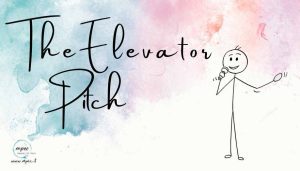Welcome to the Speaking Gym! The MPEC Conversation Club is a safe space where you can practice new English vocabulary without fear of making mistakes! Today, our conversations will be about nightmares – but not those directly related to English! We want to make you feel more comfortable if one day you find yourself in a conversation about the world of dreams, or if someone asks you what you think about sleep disorders, or if you are a ‘night owl’! Are you ready? Let’s go!
Prepared for you by: My Personal English Coach
Non sai da dove iniziare?
Not sure where to start?
4 Phrasal Verbs To Use When Talking About Sleep, Dreams and Nightmares
- Wake up – To come out of sleep, often suddenly.
- Example: “I always wake up right before the scariest part of my nightmares.”
- Freak out – To become really scared or anxious.
- Example: “That recurring nightmare about getting lost always freaks me out.”
- Shake off – To get rid of a feeling or memory.
- Example: “It takes me hours to shake off the eerie feeling after a bad nightmare.”
- Drift off – To gradually fall asleep.
- Example: “I often drift off to sleep easily but then a nightmare jolts me awake.”
Round 1: It’s all about YOU!
- Do you tend to remember your dreams?
- Have you ever experienced a nightmare that felt so real you had trouble shaking it off the next day? What was it about?
2 Cool Idioms To Describe a Nightmare in English:
- Scared the living daylights out of me” Used to describe a nightmare that was extremely frightening.
- “Haunts me to this day” Used to describe a nightmare that was so impactful or memorable that it continues to affect someone.


Round 2: It’s About The Others Now
There are several different types of sleep-wake disorders, of which insomnia is the most common. Other sleep-wake disorders include obstructive sleep apnea, parasomnias, narcolepsy, and restless leg syndrome. Sleep difficulties are linked to both physical and emotional problems.
Do you know anyone who suffers from a sleep disorder? What kind? How do they cope with it?
What would your advice be for someone who suffers from any of these sleep disorders?
🆘 Grammar Tip!
To cope with something: to deal successfully with a difficult situation or a person in a difficult situation: Ever since her illness, she just can’t cope with the stress of work
Advise is a verb that means to suggest what should be done, to recommend, or to give information to someone. The s of advise sounds like a z.
Advice is a noun that means a suggestion about what you should do. The c of advice sounds like s.
Round 3: OK, But Why?
Do you believe that dreams and nightmares have deeper meanings? Have you ever tried to interpret them?
What’s the most bizarre dream or nightmare you’ve ever had? Do you think it was influenced by something in your real life?
Have you ever experienced a recurring dream or nightmare? What do you think it signifies about your subconscious mind?

Remember – there is always more! Here is your Follow Up Video:
#MPEC #TrickyMeetings #ClearTheAir #MeetingIdioms #NavigatingDiscussions #BusinessCommunication #ProfessionalEnglish #LanguageMastery #EffectiveMeetings #WorkplaceDynamics #MasteringMeetings #DifficultConversations #IdiomaticExpressions #SpeakingSkills #BusinessEtiquette #EnglishFluency #CommunicationSkills #TeamDynamics #ConflictResolution #WorkplaceCommunication
#MPEC #RiunioniComplesse #ChiarireLaria #ModiDiDireInRiunione #NavigareDiscussioni #ComunicazioneAziendale #IngleseProfessionale #PadronanzaLinguistica #RiunioniEfficaci #DinamicheDiLavoro #MaestriaInRiunioni #ConversazioniDifficili #EspressioniIdiomatiche #AbilitàDiParlare #GalateoAziendale #FluenzaInglese #CompetenzeComunicative #DinamicheDiTeam #RisoluzioneConflitti #ComunicazioneLavorativa







